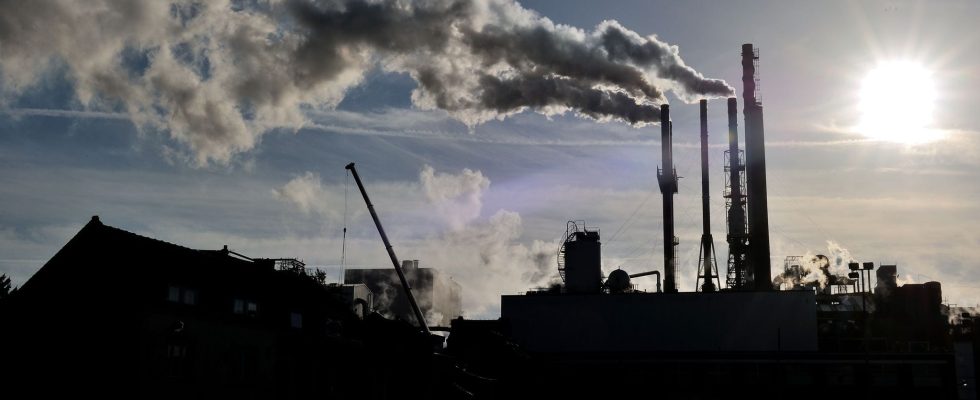Four months before the European elections in June, the European Commission unveiled, this Tuesday, February 6, its recommendations for the EU’s 2040 climate objective, which should constitute the roadmap for the continuation of the “Green Deal”. Brussels proposes in particular to aim for a 90% reduction in the EU’s net greenhouse gas (GHG) emissions in 2040 compared to 1990. This would be an intermediate step between the reduction objective of 55 % of GHG emissions by 2030, and that which provides for carbon neutrality in 2050.
Faced with resistance from certain sectors, including agriculture, on ecological regulations, Brussels wants a “fair transition” and “guaranteeing the competitiveness of the industry”. This target for 2040, which the next Commission will have to translate into concrete measures in a legislative text, would amount to continuing the same rate of decline as over the 2020-2030 decade.
A general “communication” before the European elections
On these concrete ways of achieving this objective, the European Commission remains rather vague for the moment. Indeed, the European executive was required to update its projections in the six months following COP28 in December, but it only revealed a general “communication” on Tuesday, due to the pre-electoral context. Above all, it is the next Commission, resulting from the June vote, which will have the difficult task of submitting a formal legislative proposal to the States and to the renewed European Parliament.
In broad terms, Brussels nevertheless ensures that if “equity, solidarity and social policies must enable low-income households to make an effective transition”, other political conditions are necessary: ”guarantee the competitiveness” of industrialists, ” fair conditions of competition” internationally, “stable and sustainable jobs”…
The anger of the farmers
Brussels was walking on eggshells in presenting its climate plan, with angry farmers across Europe blaming the Commission and its environmental ambitions for many of their ills. Advocating “an open dialogue with all stakeholders”, the Commission intends in particular to defuse concerns about the socio-economic impact of forced greening, as its “Green Deal” has become a scarecrow for public opinion.
After transport, energy and industry, this set of environmental legislation collapsed on agricultural issues in the face of bitter opposition from right-wing MEPs and farmers, while leaders called for “a regulatory break” to relieve businesses and households. If the greening of agriculture (which represents 11% of European emissions) is mentioned, the text removes the potential for a reduction in agricultural emissions appearing in a previous document, and considers it “more effective” to target the entire agri-food chain .
An “Industrial Green Deal”
To continue the decarbonization of certain still high-emitting sectors, Brussels is also planning an “Industrial Green Pact”, with regulations, supply chains and adequate financing. But above all, access to sufficient and affordable carbon-free energy for all, thanks to the continued growth of renewables, hydrogen networks, but also nuclear power via future small modular reactors. Electricity production should “be almost decarbonized in the second half of the 2030s”, while consumption of fossil fuels burned for energy purposes would fall by 80% by 2040, assures the Commission.
Finally, the projections for 2040 are also largely based on the capture and storage of large volumes of carbon: an environmental revolution to come for some, “unproven” technologies and making it possible not to define an exit date for fossil fuels as well. as their subsidies for others, first and foremost environmental NGOs.
In total, according to Brussels, the investments required over the period 2031-2050 could reach, annually, 660 billion euros in energy and 870 billion in transport. A colossal cost, combining public investments and private funds, but compare to the “cost of inaction” in the face of climate damage.
